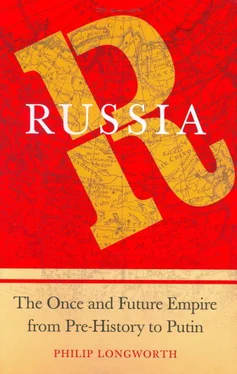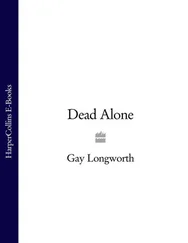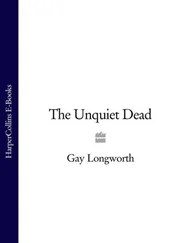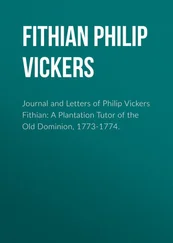The movements headquarters were in Iaroslavl on the Volga, and, though Prince Trubetskoi was still associated with it, Prince Dmitrii Pozharskii, commander of the local troops, now became its leading secular light, being elected by people of all ranks to command the army and the land. Also important was the elected representative of the great merchants {gosti) and other commercial interests, Kuzma Minin, a master butcher from Nizhnii-Novgorod. Pozharskii, in his appeals issued in the spring of 1612, blamed
the Devil… [for] creating disunity among Orthodox Christians, seducing many to join corrupt and sinful company, and [causing] rogues of every rank to band together and introduce internecine strife and bloodshed into Moscovy [so that] son rose against father, father against son, and brother against brother… and there was much shedding of Christian blood…
But now, gentlemen, we have exchanged messages with the entire land, vowed to God… and pledged our souls… to stand firmly… against the enemies and depredators of the Christian faith… We must choose a sovereign by common agreement, whomever God may grant us… lest the Muscovite state be utterly destroyed. 32
Rousing appeals, a good religious cause and patriotism were not enough, however. There had to be sanctions to force the recalcitrant into line, and those who responded had to be fed and rewarded. Documents surviving from the first attempt at a national mobilization show how this was organized. Servicemen who failed to answer the call to arms and present themselves at the appointed place by the appointed date were to forfeit their service estates, though those who pleaded poverty could petition for their return. On the other hand, those who served well would be allotted estates and money pay. 33These provisions had presupposed functioning state ministries — particularly the department of service estates and the financial departments, including the office that ran the crown estates -and as yet the movement had no control of these. Nevertheless, it did redistribute some land on this basis of its promises. But its first need must have been for money.
We know it commanded sizeable sums, because it was able to mint coins and pay the troops it recruited. Since the normal means of raising state income had broken down, one may assume that initially at least the Church was the chief source of funds. Very little is known about the finances of the Russian Church, but both the high profile of the Church in the revival and the fact that it commanded a major proportion of the country’s resources, including approximately a third of all cultivated land, strongly suggest that the Church filled the critical financial gap. 34And so in 1612 events at last moved towards a resolution.
In August 1612 the army — over 10,000 strong, but not particularly well equipped — arrived outside Moscow. It soon engaged the Polish forces of Hetman Chodkiewicz, forcing them into retreat. It also halted King Sigismund when he approached with an army to take control of the situation. Realizing that their prospects now seemed poor, in October the Russian power-brokers who had sponsored Prince Wladyslaw withdrew from the Kremlin, and on the following day the Polish garrison, now down to 1,500 hungry men, surrendered.
The call went out for delegates to come to Moscow to choose a tsar, and by January 1613 hundreds were arriving. Wladyslaw, the Polish candidate, was now ruled out, and the Swedish contender, Prince Karl Filip, had little more support. Trubetskoi’s candidature was blocked by Pozharskii, and both of them opposed the sixteen-year-old Michael Romanov, who was hardly an impressive candidate and had been associated with the Polish occupiers. However, the Romanovs were rich, and they spent money to promote their man. The Cossack delegates were eventually won over — or bought — and on 21 February Michael was chosen. 35His father, Filaret Romanov, was installed as patriarch, and Michael himself was crowned in July 1612. Though the Cossack leader Zarutskii, Marina and her four-year-old son (known as the ‘little brigand’) were not to be caught and dealt with until the summer of 1614, at last the work of reconstruction could get under way
The Time of Troubles left in its wake both a damaged economy and damaged institutions. It also established a tradition by which governments were to be challenged by pretenders who denied the tsar’s legitimacy. Such claimants sprang up from various parts of the country with increasing regularity over the next two centuries, threatening to destabilize government in Russia. 36Yet there was a positive legacy too. The trauma impressed on most Russians a sense that even oppressive, autocratic government was preferable to the mayhem of anarchy, and the regime took care to remind them of it.
Events had also demonstrated that even in the early 1600s Russians were coming to share a common national consciousness. It has been argued that the imperial nature of the ethnically diverse Russian state inhibited the development of Russian nationalism, but a strong sense of patriotism — perhaps as strong as that manifested in Elizabethan England — was shared by Russians from the north and south, east and west. Russians knew who they were, and it was not only their Orthodox religion, contrasting with the Catholic, Protestant and Muslim faiths of their neighbours, that defined them; nor their language, which, except for the Old Church Slavonic used for religious purposes, was not yet a standard or literary one; nor their customs, which varied to some extent from region to region — though all these elements contributed. They shared a sense of community associated with the land, and, as the letters sent out to mobilize a national army demonstrate, even strangers among them, such as Muslim Tatars, were not excluded. They too were accepted as part of the Russian political community. 37
And, though the Troubles had shorn Russia of much of its empire, there were some areas where the process of empire-building had hardly been interrupted.
EARLY IN 1613 several groups of officials and clerks, with small retinues of servants carrying bales of sable-skins, live falcons and other valuables, were to be seen leaving Moscow by sledge or boat. These wise men bearing gifts were embassies bound for the courts of the Habsburg Emperor, the King of Poland, the Turkish Sultan, Denmark, England and several lesser powers. Later that year and the year that followed, others left — for Persia, France and Holland. Their purpose was to announce that Tsar Michael Romanov (together with his father, Patriarch Filaret) now guided Russia’s destiny; that the Time of Troubles was over. But their brave show masked the sad condition of the country. The economy was shattered, the currency debased, the government bankrupt, administration in disarray, the population reduced and exhausted. And Russia was still pursuing unaffordable wars with Sweden and with Poland. The only foreign-policy options now were defensive; the only possible economic policy was retrenchment.
Despite its desperate need for revenue, the government had to suspend tax collection in some stricken regions for a time to allow them to recover, and the ambassadors were in effect sent out with begging bowls in hand. With Poland they were to negotiate a treaty of ‘eternal peace’, even at the cost of ceding rich tracts of territory and important towns including the great fortress city of Smolensk. Other powers were to be asked for military and financial aid. 1But the brave show of formal ceremony which the ambassadors maintained, and their cautious, hard-headed, approach in negotiations, could hardly disguise the fact that Russia’s aspirations to great-power status had become laughable.
Читать дальше





![Stephan Orth - Behind Putin's Curtain - Friendships and Misadventures Inside Russia [aka Couchsurfing in Russia]](/books/415210/stephan-orth-behind-putin-s-curtain-friendships-a-thumb.webp)





